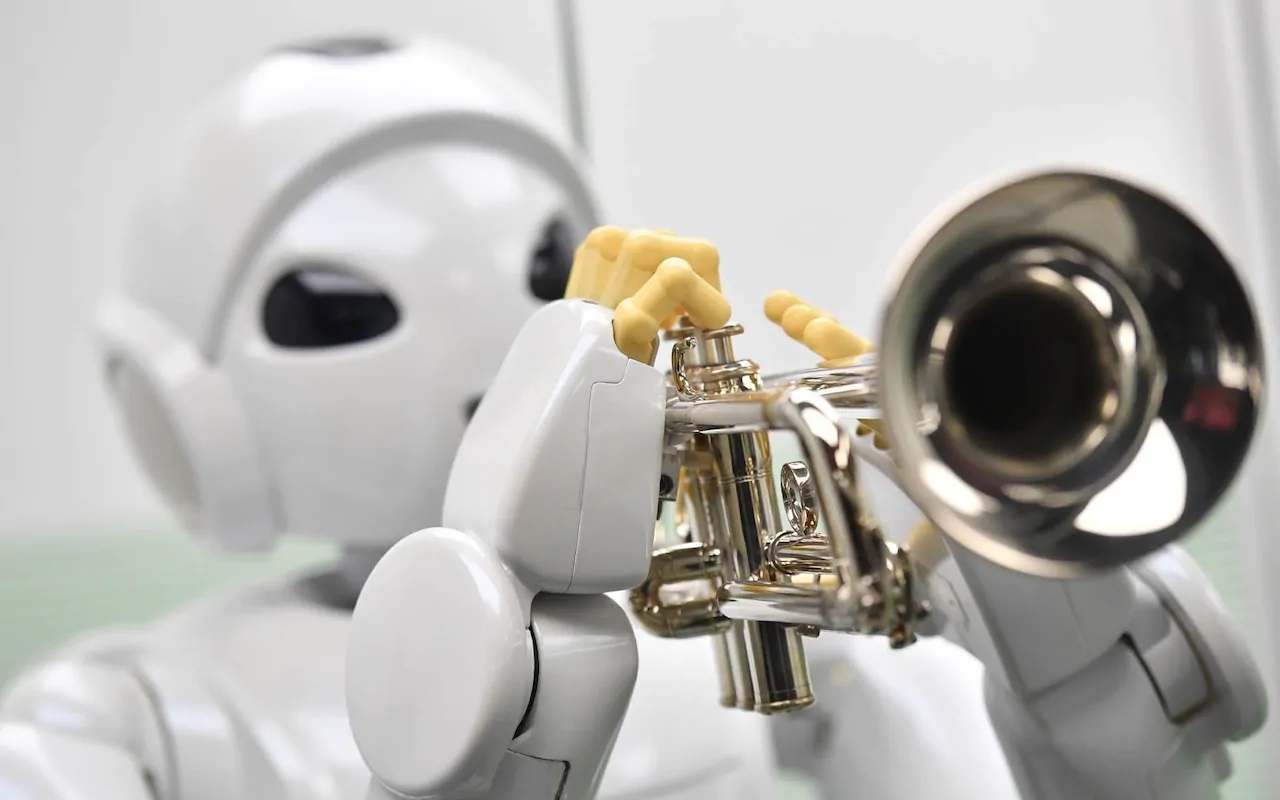
Some Joy and a Little Ache
Jazz is music made by and for people who have chosen to feel good in spite of conditions.
—Johnny Griffin
Oliver, the Helperbot 3 at the heart of Maybe Happy Ending, is obsessed with jazz. He naturally has his favorite artists and recordings, as well as a subscription to a monthly jazz magazine. He even gives regular lectures to HwaBoon, his plant-roommate. He has made jazz a part of his daily life. While the audience learns early on that Oliver’s former owner taught him everything he knows, the robot’s continued fascination with jazz seems to have become an authentic expression of his selfhood. So what is it about this distinctly American style of music that lights a fire within this Korean robot?
The Alliance’s unofficial in-house jazz expert, Director of Education and Associate Artistic Director Chris Moses, is the perfect person to answer this question. “I see a lot of myself in Oliver,” he admits. Like the robot, he is always ready with a brief-yet-detailed overview of the art form’s history and place in American culture. With roots in African-American musical traditions, jazz exploded into being the country’s foremost popular music genre in the 1920s. Even after its heyday, jazz has both accompanied and grew alongside American culture for the last century.
Even still, despite its place as one of the few genuinely American art forms and its enormous popular appeal around the world, it has steadily fallen out of vogue over the last few decades. In this way, Moses suggested, it can feel obsolete to the mainstream. Similarly, as an outdated Helperbot model, Oliver is clinging to the belief – and to the need to believe – that he still has plenty to offer the world, while finding joy in something from his own past (the music that his former owner cherished) as well as something from our collective cultural past (jazz itself).
Perhaps the most fascinating contradiction in Oliver’s passion for jazz is the chasm between man and robot. “It’s such a human art form. So much of jazz relies on the interconnectedness of the musicians,” Moses says, citing Duke Ellington as an example of a composer writing entire pieces specifically for his players (such as “Concerto for Cootie”). By that same token, improvisation is at the core of the genre, something entirely at odds with the strict binary that we typically associate with robots and technology.
Oliver is a robot, but he also has a deep and sincere love for an intangible human creation. Both of these truths, seemingly contradictory, exist in harmony. It is fitting, then, that jazz is an art form in which contradictions flourish, where classical training can find a perfect partner in human instinct and exuberant joy can mingle with an indescribable melancholy. The music itself has evolved into so many subgenres that the range of what can legitimately be called jazz is as immense and diverse as humankind. It’s a kind of music for everybody – including robots.
For tickets to Maybe Happy Ending call 404.733.5000 or visit alliancetheatre.org/maybe.



